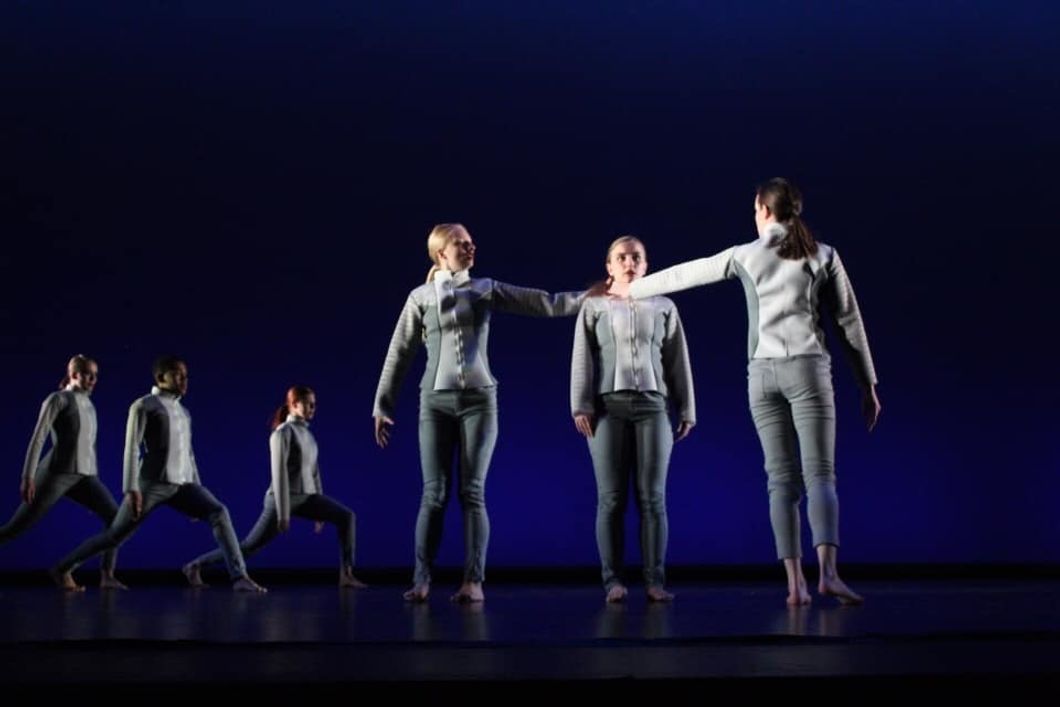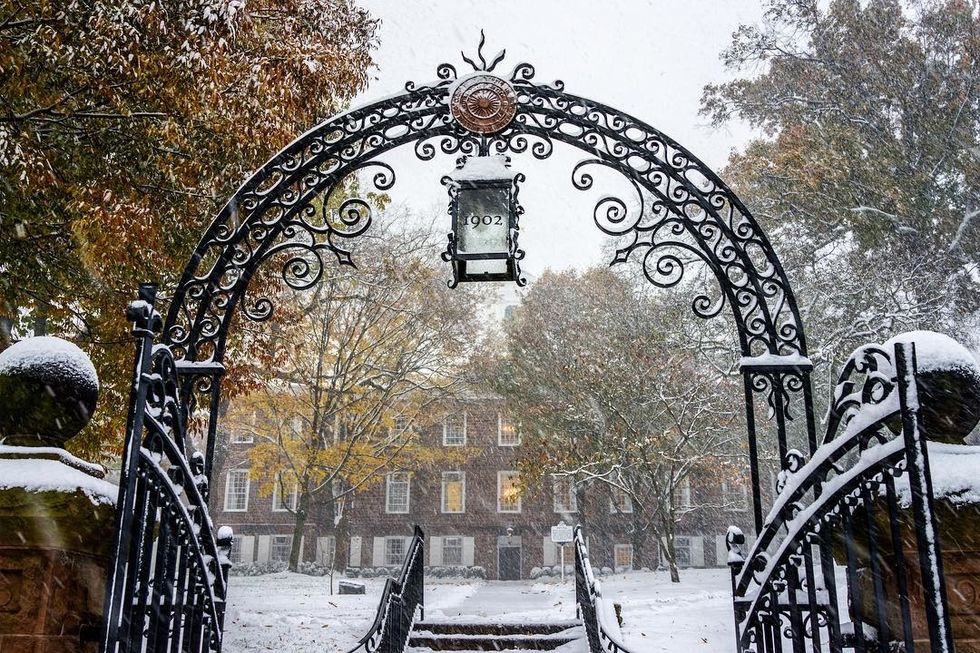Saying Goodbye To The Mainstage, Where Blood, Sweat, And Tears Were Left
It will always been a special place that I hold dear to my heart.
As Senior year begins to come to a close, even though I don't want to admit it, I have to say goodbye to yet another meaningful thing at JMU: The Mainstage Theatre in the Forbes Center for the Performing Arts. The Mainstage Theatre isn't just any proscenium performance space; it represents the ultimate goal every Dance Major hopes to accomplish by the end of their dance journey at JMU. It's the largest venue on campus for dance performances, seating over 450 audience members.
Once a year, the Dance Program puts on a four-night performance in this space featuring works choreographed by faculty, guest artists, and students with advanced choreographic skills. This concert is known as "New Voices in Dance" featuring the Contemporary Dance Ensemble. Every Dance major dreams of having the opportunity to perform on this stage before they graduate from JMU. If you get the chance to perform here more than once, it's definitely something to be cherished and people will definitely be jealous.
There's something special about getting to dance on the big stage with all of the lights shining on you from the wings and overhead. One of my favorite things is looking up and seeing all of the different flies and the ceiling that never seems to end with the catwalk at the very top. Not to mention looking out into the audience and sometimes not even being able to distinguish faces because there are so many people, both in the orchestra and up in the balcony. It's humbling to know that you've worked so hard on these pieces since the beginning of September and now they're finally being performed in a professional space and everyone is there to watch you do what you love.
Dancing on the Mainstage opens up a whole realm of cool effects that can be done throughout the concert. This past show, there was a fog machine used in some of the pieces, strobe lights, and even rain that came pouring down from a showerhead in the piece I performed in.
During a Mainstage performance show week, there's something indescribable in the air that I will always miss and be grateful for. Everyone is hyped up and excited to perform, and the energy is unlike anything I've experienced. You're assigned a dressing room and get to choose your own seating space with a vanity and mirror. It truly does feel like being in a professional company. There's music blasting and everyone gets ready together and takes pictures with their casts.
This past week was my second time performing in the "New Voices in Dance" concert on the Mainstage. I had the privilege of being cast in a faculty work for the second time in my Dance career at JMU. Getting to work with two prominent faculty members, Cynthia Thompson, Director of the Contemporary Dance Ensemble, and this year, Rubén Graciani, Director of the School of Theatre and Dance, has been such an incredible experience. Both pieces spanned over a six-month choreographic process, in which I became close with the dancers in both casts. We went through the challenging yet rewarding process together and grew as a cast in both of my experiences.
This past week brought the Contemporary Dance Ensemble members together in a new way and I definitely became closer with members of our cast and bonded over this unique experience. I participated in the ensemble's tradition of honoring the senior Dance majors in what is called "Senior Circle." During our warm-up each night before a show, a few seniors were selected and individually sat in the center of a circle created by the ensemble with their eyes closed.
Members of the ensemble took turns going up to the senior in middle and whispering words of admiration, memories, or something funny in the senior's ear. It was such a heartwarming and intimate experience getting to hear all of the wonderful and funny things people had to say to me.
Saying goodbye to a place where so many memories have been made and challenges have been overcome is difficult. Blood, sweat, and tears were left on this stage and memories that I will never forget. So thank you Mainstage and thank you Contemporary Dance Ensemble for making this yet another unforgettable concert.
Cover image courtesy of Emily Amey

























Genetically Modification Could Save Future Babies From Illnesses, But Also Pose New Issues
Now imagine if people can breed smarter, stronger, and (sociologically) more attractive kids? The problem is that the possibilities are truly endless, and this experience has insidious implications.
You read that right. He Jiankui, a renowned scientist from China, has created the first two human genetically modified babies. The technology is called CRISPR/Cas9, and it's the same tech that we use to modify plants like soy.
My first question was "are people just allowed to do that?" Well, depends on what country you live in. In the US for example, there are at the least minimal regulations based on ethics. However, this hasn't stalled us from innovating at a startling pace. America only lagged two years behind China for the first genetic modifications to a human embryo. Since it is seen as far more controversial in Western nations, we have seen the slight delay of creating genetically modified babies. But make no mistake, it is only a lag. Not a prevention.
Many critics of this innovation echo the sentiment of Eric Topol, a geneticist at the Scripps Research Institute, who said, "We're talking about changing every cell of the human body's 37 trillion cells. That's never been done before. And it was done in a rogue fashion.''
But the changing of our genetics begs a bigger question than the way it was accomplished.
Should we be able to alter our genes?
People inside and outside the scientific community are saying no, and for many different reasons. The first deals with whether or not we should diagnose embryos with genetic diseases and cure them before the infant is born, and then use genetic modification as a direct solution. For example, He was altering the embryos in order to prevent the HIV that they would have from their fathers. However, there are already scientific methods that do not involve genetic modification, such as "washing" the sperm of the HIV. The truth is, once this technology hits the market, we can't currently regulate which method people will choose. And CRISPR kits are already inexpensive online, rounding up to about $1,000. There's a lack of legal understanding, in the US and abroad, on whether or not these experimentations are legal. This compounds the problem when the effects of this innovation can be massive and devastating.
The next controversy deals with "designer babies." This is a concept developed from the imagination of what gene editing could bring, with a terrifyingly familiar tune of eugenics. Will people begin crafting a "superior race"? As one can imagine, this will only be accessible to the wealthy one-percenters who already have paramount advantages over the rest of the population. Now imagine if people can breed smarter, stronger, and (sociologically) more attractive kids? The problem is that the possibilities are truly endless, and this experience has insidious implications.